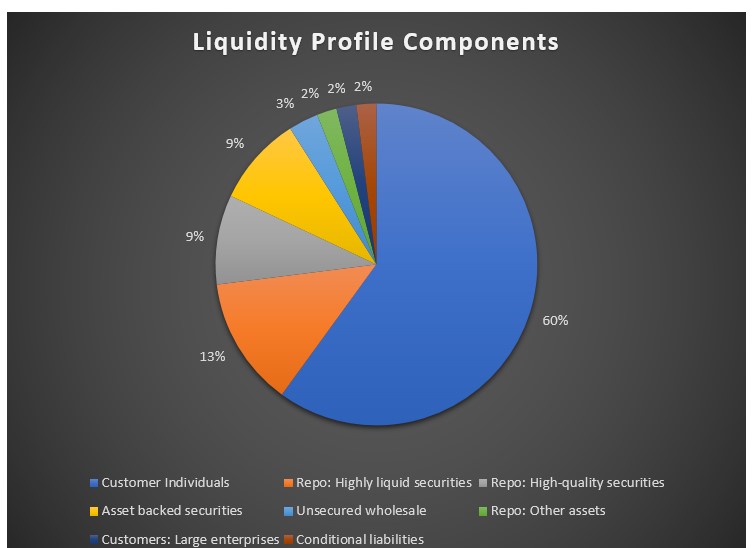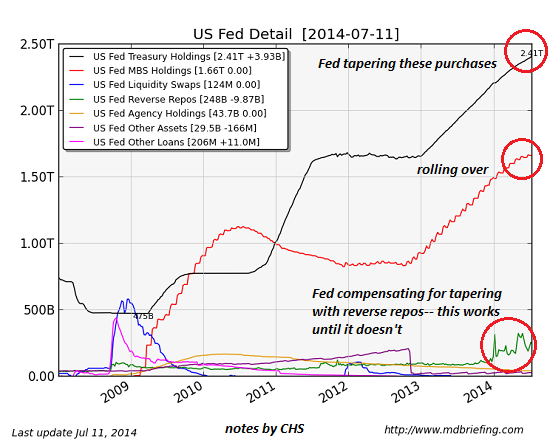
Engaging in the training, support, and using the systems and processes the franchise has developed reduces your operational risks thereby increasing the likelihood of success. This is what franchising is all about – having proven systems and processes that others have used to be successful. Is this process a guarantee of success? Absolutely not.
Full Answer
How does franchising affect the ability to compete?
What is franchising strategy?
How does franchising create competitive advantage?
About this website

How does franchising reduce risk?
By using other people's money, the franchisor can grow largely unfettered by debt. Moreover, since the franchisee -- not the franchisor -- signs the lease and commits to various contracts, franchising allows for expansion with virtually no contingent liability, thus greatly reducing the risk to the franchisor.
How does a franchise help an economy?
Franchises support the national GDP through billions of dollars in products and services, payroll, and the creation of American jobs. Local economies benefit from franchises by providing jobs, tax dollars, and community involvement. Voters trust franchise brand power for its consistency, quality, and value.
How do businesses protect from recession?
5 Ways to Protect Your Business From a RecessionDiversify. Consider what products you could add to your line-up at a minimal cost. ... Understand your cash flow. ... Prepare your team. ... Strengthen your customer relationships. ... Be willing to change your mindset.
What are the benefits and risks of franchising?
What Are The Advantages And Disadvantages Of Owning A Franchise?Advantage #1: Proven Business Model & Operating Procedures. ... Advantage #2: Access To Training & Support. ... Advantage #3: Start Generating Income Quickly. ... Disadvantage # 1: Rules And Strict Guidelines. ... Disadvantage #2: Reputation.
What are the seven benefits of franchising?
Starting a Business: 7 Benefits of Franchising Your BrandCreates Capital. Franchisees use their own capital. ... Limited Liability. The franchisor avoids a lot of responsibility. ... Access to the Best Talent. ... Speeds up Expansion. ... Motivation to Succeed. ... Brand Building. ... International Expansion.
Why has franchising been so successful in developed countries?
Franchising enables companies to decentralize the cost of operating the local operation, while reducing the cost of headquarters operations using non-dilutive third party capital to expand the system. All these have a positive impact on a company's return on investment.
What businesses do well during recession?
5 Businesses to Start During a RecessionAccounting. If you have experience in accounting, bookkeeping business is an excellent idea during a recession. ... Cleaning Services. ... Reselling. ... Business Service Freelancing. ... Property Management.
How do you become recession-proof?
Five Steps to Recession-Proof Your FinancesMake yourself invaluable at work. ... Pay off expensive debt as soon as you possibly can. ... Save as much as you can. ... Stay invested—and diversified. ... Make contingency plans.
Which industries are recession-proof?
In this article, we provide a list of recession-proof industries for you to consider that typically do well during an economic downturn....14 recession-proof industriesHealth care. ... Food and beverage. ... Discount retail. ... Utilities. ... Federal government. ... Education. ... Law enforcement. ... DIY and repairs.More items...
What are 3 advantages of franchising?
Franchisors usually provide the training you need to operate their business model. Franchises have a higher rate of success than start-up businesses. You may find it easier to secure finance for a franchise. It may cost less to buy a franchise than start your own business of the same type.
What are the 5 advantages of owning a franchise?
Five Advantages of Buying a FranchiseMuch of the work needed to launch a business idea has already been done. ... Not as much, if any, experience is needed to start. ... Support from a larger network of businesses. ... Ability to tap into the collective buying power of the franchisor. ... In cases, financing may be easier to secure.
What are the 10 benefits of franchising?
There are several advantages of franchising for the franchisee, including:Business assistance. One of the benefits of franchising for the franchisee is the business assistance they receive from the franchisor. ... Brand recognition. ... Lower failure rate. ... Buying power. ... Profits. ... Lower risk. ... Built-in customer base. ... Be your own boss.
How do franchise businesses impact the local community?
With ownership that promotes local communities, franchising creates new businesses that bring new or enhanced products into local markets and add new services to local economies. More than 60 percent of all jobs added annually in the U.S. occur in small businesses, according to the Bureau of Labor Statistics.
Why is franchising a growing business?
Franchise businesses have the advantage of providing franchisees a corporate system of success and are not left alone to figure out what to do on a trial and error basis. They have a structure and support system that is proven to work, making a franchise far less risky than a do-it-yourself endeavor.
How does franchising help the growing economy of the Philippines?
The Key Role of Franchising Today, franchising plays a crucial role in sustaining the country's economy by creating job opportunities, boosting consumption growth, and promoting tourism.
How does franchising affect the economy in the Philippines?
Franchising is a major driver of economic growth in the Philippines. Providing products. market. Hence, these companies help the economic growth to drastically increase.
What to know before investing in a franchise?
What else should I do before investing in a franchise? 1 Are you ready to communicate with people? This goes beyond just employees. You must be ready and willing to communicate with your franchisor and most importantly, your customers. You’ll need to meet (and exceed) customer needs. 2 Do you listen? How are you at accepting feedback, even if it isn’t positive? Are you able to keep an open mind and find opportunities for growth? 3 Are you optimistic? There will always be up and down days in business. Is your mindset one where you’re able to view the glass as half-full, even when it feels impossible? 4 Do you find ways to keep learning something new every day? You should be able to challenge yourself as an entrepreneur, not get into the industry to coast off the success of the pre-existing franchise.
Is entrepreneurship a risk?
Entrepreneurship is a field that is not without its risks. However, many individuals interested in pursuing entrepreneurship often choose to become franchisees in order to minimize the risk that comes with operating a business.
What is the FTC?
The Federal Trade Commissions (FTC) regulates the franchise industry.
What are the factors that impact risk?
Factors that impact risk are personal attitude and actions, quality of service, time management, and location. They are controllable by you. On the other hand, some factors are simply not controllable—for example, a national crisis. In September 2001, I was ready to start a new business, then September 11 happened.
Is franchise business risky?
Yes, even franchise businesses have some risks, but here are four ways to reduce them. The first thing anyone considering franchise ownership should understand is that there is no guarantee of success. This may be obvious but needs to be stated clearly. However, there are some risks that can be controlled. Factors that impact risk are personal ...
Does the FTC restrict franchises?
There are restrictions from the FTC on certain things a franchisor and Franchise Consultant can say; but it does not restrict franchisees, so they can be more forthcoming. You’ll want to engage the services of a CPA to review the financials of the franchise and possibly help you develop a pro forma.
How does franchising affect the ability to compete?
Finally, this study argues that a firm's relative speed of franchising affects its ability to engage in dynamic competition. In particular, a restaurant firm that implements franchising faster than its competitors may engage better in dynamic competition and outperform them. Faster franchising implementation could facilitate organizational learning by increasing the rate of knowledge acquisition from franchisees. Franchisors that quickly assimilate and apply new knowledge to existing routines and practices are able to develop a greater number of organizational strategies for future use. Through increased organizational learning, faster-moving franchisors can establish market-adjusted strategies and gain competitive advantages ( Zahra & George, 2002 ). Since restaurant franchisors that more aggressively expand through franchising can modify or develop new menu items and/or services faster than their competitors, they may respond better to contemporary market trends and consumers' expectations, thereby increasing their dynamic competition.#N#H4#N#A higher relative speed of franchising increases a firm's dynamic competition.
What is franchising strategy?
The franchising strategy is a significant and representative strategic action in the hospitality industry, so this study examines the relationship between the relative degree and speed of franchising involvement (i.e., strategic action) and the competitive condition of the firm.
How does franchising create competitive advantage?
The RBV provides a critical perspective on how franchising can generate competitive advantage by acquiring valuable, rare, inimitable, and non-substitutable (VRIN) resources to create competitive advantages ( Barney, 1991 ). In the franchising context, human resources (i.e., franchisees) and localized knowledge transferred from franchisees to franchisors help establish competitive advantages, because franchisees typically are high quality, self-motivated workers who share the franchisor's identity and strategic vision ( Lashely & Morrison, 2000 ). Repeatedly, the knowledge-based view (KBV; Kogut & Zander, 1992) suggests that a franchisee's market knowledge is essential for franchisors to improve organizational learning and establish successful market-specific strategies. Because franchisees are more likely to possess specific knowledge about local markets than franchisors, their knowledge can help franchisors adjust their business practices to local markets by refining existing routines or developing new strategies which could generate competitive advantages for the organization.
How does franchising affect the ability to compete?
Finally, this study argues that a firm's relative speed of franchising affects its ability to engage in dynamic competition. In particular, a restaurant firm that implements franchising faster than its competitors may engage better in dynamic competition and outperform them. Faster franchising implementation could facilitate organizational learning by increasing the rate of knowledge acquisition from franchisees. Franchisors that quickly assimilate and apply new knowledge to existing routines and practices are able to develop a greater number of organizational strategies for future use. Through increased organizational learning, faster-moving franchisors can establish market-adjusted strategies and gain competitive advantages ( Zahra & George, 2002 ). Since restaurant franchisors that more aggressively expand through franchising can modify or develop new menu items and/or services faster than their competitors, they may respond better to contemporary market trends and consumers' expectations, thereby increasing their dynamic competition.#N#H4#N#A higher relative speed of franchising increases a firm's dynamic competition.
What is franchising strategy?
The franchising strategy is a significant and representative strategic action in the hospitality industry, so this study examines the relationship between the relative degree and speed of franchising involvement (i.e., strategic action) and the competitive condition of the firm.
How does franchising create competitive advantage?
The RBV provides a critical perspective on how franchising can generate competitive advantage by acquiring valuable, rare, inimitable, and non-substitutable (VRIN) resources to create competitive advantages ( Barney, 1991 ). In the franchising context, human resources (i.e., franchisees) and localized knowledge transferred from franchisees to franchisors help establish competitive advantages, because franchisees typically are high quality, self-motivated workers who share the franchisor's identity and strategic vision ( Lashely & Morrison, 2000 ). Repeatedly, the knowledge-based view (KBV; Kogut & Zander, 1992) suggests that a franchisee's market knowledge is essential for franchisors to improve organizational learning and establish successful market-specific strategies. Because franchisees are more likely to possess specific knowledge about local markets than franchisors, their knowledge can help franchisors adjust their business practices to local markets by refining existing routines or developing new strategies which could generate competitive advantages for the organization.
